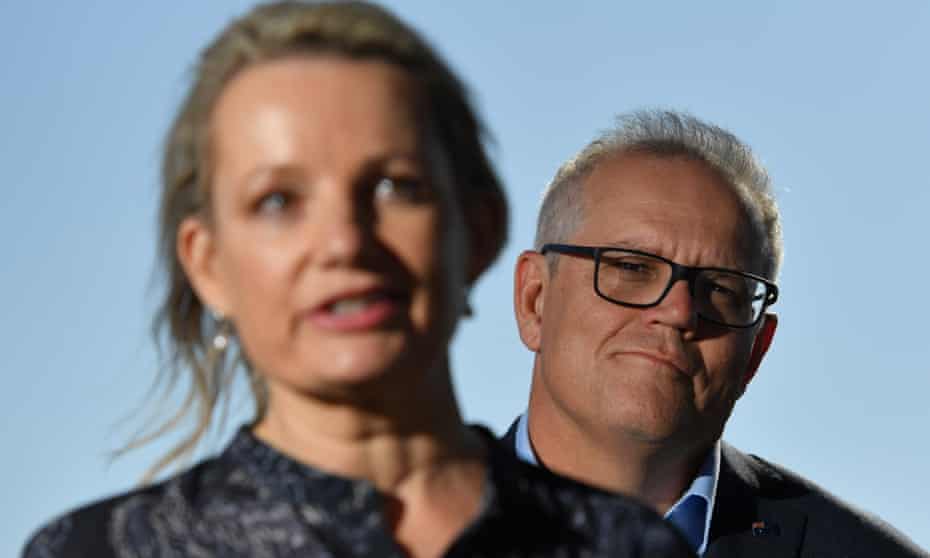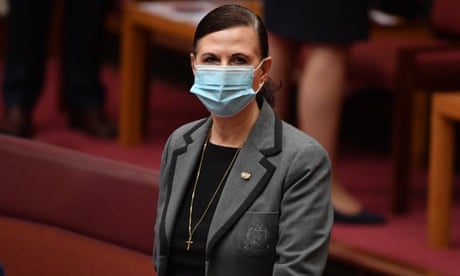Extract from The Guardian
Factional warfare in Scott Morrison’s home state is giving the Coalition’s opponents a valuable head start when it comes to campaigning.

Last modified on Sat 19 Feb 2022 06.01 AEDT
Three months, at most, from the next federal election, the seat of Hughes, in Sydney’s Sutherland shire, should be a prime target for the New South Wales Liberal party.
After Craig Kelly’s defection to the United Australia party, the seat, which the Liberals won with a 10% margin in 2019, became a key battleground. In a normal year, the party would already have a high-quality candidate knocking on doors and nodding encouragingly behind Scott Morrison at press conferences.
Instead, this year, there’s no one. Kelly has renominated to run for the UAP, spending Clive Palmer’s money freely on newspaper and television advertisements, as have a handful of independents and Peter Tsambalas for the Labor party.
The story of a missing Liberal candidate is repeated in a clutch of key seats across the state. In Dobell on the Central Coast, Tony Abbott’s former seat of Warringah, Parramatta in Sydney’s west, and also Bennelong, Eden Monaro and the party’s key NSW Senate spots.

It’s not for a lack of trying. For months, the party’s NSW executive has, with increased urgency, tried to hash out a preselection deal which would finally get candidates on the ground. It hasn’t worked. An increasingly toxic factional standoff between the party’s competing tribes has turned the division into a morass, prompting threats of intervention from the prime minister and the prospect of a damaging supreme court battle.
“I’m no longer optimistic we can get anything done,” one senior Liberal party source told the Guardian this week.
Unpicking the factional grievances at play in NSW requires both a PhD in internal Liberal party politics and a lot of spare time, but at its heart, predictably, is power, as well as a handful of administrative rules introduced in 2017 with the intention of making the party more democratic.
Enter Alex Hawke
The so-called “Warringah rules”, championed by Abbott after he was rolled by Malcolm Turnbull as prime minister, introduced what was called a “one member one vote” rule, essentially creating local plebiscites in preselection ballots. The rules were aimed at making the party more democratic, while also making it harder for the state executive to overrule branches by requiring a 90% voting threshold to use its special powers to install candidates.
But by failing to protect sitting MPs, the rules have created a headache for Morrison in the lead-up to the election. Two ministers, Sussan Ley in Farrer and Alex Hawke in the Sydney seat of Mitchell, are yet to be endorsed, as is the influential moderate in North Sydney, Trent Zimmerman.
All three have faced competitors in their nominations, and have had preselections on hold because of fears they might lose a ballot of the local membership. Enter Hawke, chieftain of the party’s centre right faction, of which Morrison is a member, and a key figure inside the NSW division.
For months, figures inside the party’s right and moderate factions have claimed that Hawke was not making himself available for candidate vetting, a necessary step for the party to progress to preselection. As recently as this week Concetta Fierravanti-Wells, a Liberal senator from the party’s right who is also fighting to hold on to her spot on the ticket, accused Hawke of failing to “carry out his party functions as a member of the nomination review committee in a timely manner”.
Instead, the party’s executive has twice – including this week – been asked to use the special powers in its constitution to bypass preselections and formally endorse them.
They haven’t. Instead, a rump of members in the right and moderate factions have continued to block their endorsements using the new 90% rule.
The reasons are complicated and contradictory, but relate both to a desire for local preselections and a failure to settle on a deal on the other remaining seats which can appease all three groups.
A series of compromise deals have been floated, including one which would see the right’s Alex Dore – a nephew of The Australian’s editor-in-chief, Chris Dore – parachuted into Hughes while dividing the spoils of the other seats and saving the three sitting MPs. None of them have yet worked.
‘They’d prefer to risk it all’
This week, the saga took another unexpected twist. At a hastily arranged meeting of the party’s executive, members were presented with legal advice stating that if it did not hold an annual meeting by the end of February they would soon be in breach of their constitution.
The advice suggested federal intervention was required to reappoint members of the executive until the party’s postponed annual general meeting was held in March. But it was fiercely contested by right-faction members who have for months believed Hawke and Morrison were attempting to generate a crisis to allow the federal executive to intervene.
At Wednesday’s meeting the right faction’s Matthew Camenzuli presented competing legal advice that suggested a federal intervention was unnecessary, and figures within that faction are suggesting they are willing to take legal action to block any takeover.

But the federal executive, of which Morrison is a member, came back with its own proposal: endorse the three sitting MPs within 10 days or else face federal intervention.
The NSW executive now faces a daunting task. Either overcome the impasse, or else face a federal takeover. While members were in discussions on Friday ahead of a likely ballot decision next week, there is hardly a consensus on a way forward.
“The problem is that the 90% threshold is just so prohibitively high,” one member says.
“There are people on the executive from all factions that are just completely lacking in pragmatism. They’d prefer to risk it all because they don’t like one of the candidates or they’re not getting everything they want. I’d prefer to get 80% of something than 100% of nothing.”
Hawke did not respond to the Guardian’s requests for comment.
No comments:
Post a Comment